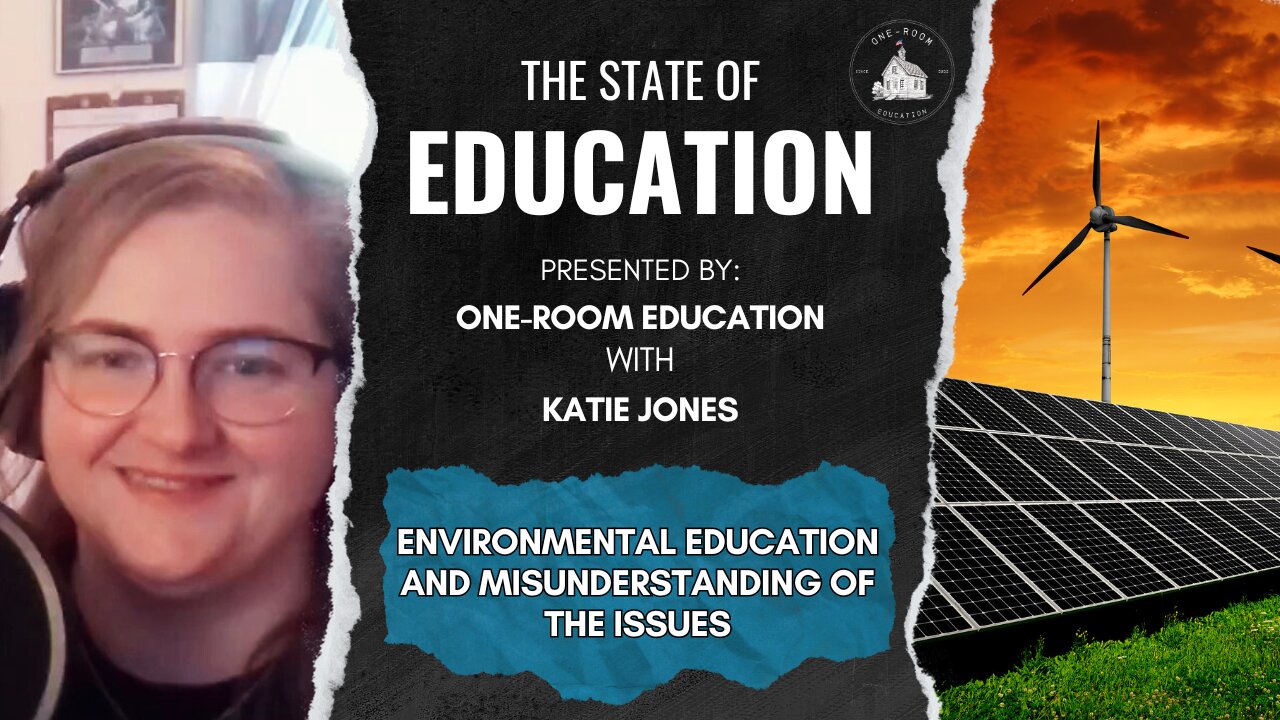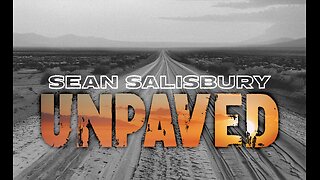Premium Only Content

The State of Education LIVE: Environmental Education and Misunderstanding of the Issues
Summary:
In this livestream, Katie Jones discusses the importance of environmental education and the misconceptions surrounding it. She criticizes fear-based education and the use of fear to manipulate people's understanding of environmental issues. Katie also highlights the need for practical and applied environmental education that promotes sustainability and stewardship. She addresses the misinterpretation of facts and the impact it has on young people's mental health. Additionally, she explores the paper versus electronic communication debate and provides statistics on paper recycling rates and greenhouse gas emissions. In this conversation, Katie Jones discusses the environmental impact of different forms of energy production, including electronic communication, paper industry, nuclear power, solar panels, and wind farms. She highlights the trade-offs and vulnerabilities associated with each form of energy and challenges the prevailing narratives around renewable energy. Katie also raises concerns about the influence of diversity, equity, and inclusion (DEI) in environmental education and emphasizes the importance of critical thinking and unbiased research.
Chapters:
00:00 Introduction and Technical Difficulties
03:42 Upcoming Livestream and One Room Education Classroom Launch
12:05 Fear-Based Education and Misinterpretation of Information
19:50 Promoting Sustainable Environmental Stewardship
27:45 Paper Recycling Rates in Europe
38:03 Greenhouse Gas Emissions: Paper versus Electronic Communication
39:52 Examining the Environmental Impact of Different Forms of Energy Production
50:04 The Trade-Offs and Vulnerabilities of Renewable Energy Sources
56:03 Challenging Narratives: Nuclear Power as a Clean Alternative
01:04:26 The Risks and Concerns Surrounding Solar Panels and Wind Farms
01:12:14 The Influence of DEI in Environmental Education: A Critical Perspective
Key Takeaways:
1. Fear-based education in environmental issues can lead to anxiety and a lack of critical thinking.
2. Environmental education should focus on practical and applied knowledge, promoting sustainability and stewardship.
3. Misinterpretation of facts and misinformation can lead to misconceptions about environmental issues.
4. Paper recycling rates are high in Europe, debunking the belief that forests are shrinking.
5. The ICT industry has a higher greenhouse gas emission rate compared to paper and print products. Different forms of energy production have varying environmental impacts and trade-offs.
5. The paper industry and electronic communication both have significant environmental consequences.
6. Nuclear power is a clean alternative to fossil fuel-generated electricity and requires less land compared to solar and wind farms.
7. Solar panels and wind farms have vulnerabilities and can pose risks to the environment and water supply.
8. The influence of diversity, equity, and inclusion (DEI) in environmental education may divert attention from critical thinking and unbiased research.
Enjoyed this episode of The State of Education? Head over to https://one-roomeducation.com/ to check out more great One-Room content.
Support Our Work:
If you enjoy this content, head over to https://one-roomeducation.com/support-our-content/ to find out all the ways you can support us in our efforts to help create the most free and prosperous generation yet.
-
 1:28:42
1:28:42
Redacted News
5 hours agoBREAKING! SOMETHING BIG IS HAPPENING IN EUROPE ALL OUT WAR IS COMING AGAINST RUSSIA, TRUMP FURIOUS
108K252 -
 47:50
47:50
Candace Show Podcast
5 hours agoBREAKING: Judge Makes Statement Regarding Taylor Swift's Text Messages. | Candace Ep 155
94.3K101 -
 DVR
DVR
Josh Pate's College Football Show
2 hours agoCFB’s Most Hated Teams | FSU & Clemson Future | Big Ten Win Totals | Star Rankings Overrated?
5.76K -
 1:33:47
1:33:47
CatfishedOnline
4 hours agoGoing Live With Robert - Weekly Recap
19.4K -
 55:18
55:18
LFA TV
1 day agoEurope’s Sudden Turn Against America | TRUMPET DAILY 3.6.25 7PM
25.5K3 -
 4:21
4:21
Tundra Tactical
3 hours ago $1.38 earnedPam Bondi MUST Enforce Due Process NOW!
18.4K1 -
 56:42
56:42
VSiNLive
5 hours agoFollow the Money with Mitch Moss & Pauly Howard | Hour 1
43.6K1 -
 1:05:32
1:05:32
In The Litter Box w/ Jewels & Catturd
1 day agoShalom Hamas | In the Litter Box w/ Jewels & Catturd – Ep. 756 – 3/6/2025
98.7K37 -
 1:23:00
1:23:00
Sean Unpaved
6 hours ago $2.98 earnedNFL Free Agency
50.9K3 -
 18:25
18:25
Stephen Gardner
5 hours ago🔥The REAL REASON the Epstein Files are being HIDDEN | I CONFRONT Alan Dershowitz for details!
63.3K109